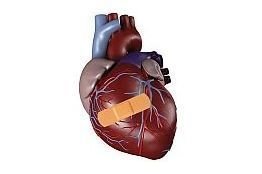
The Absorb BVS is a small mesh tube designed to open a blocked heart vessel, restore blood flow to the heart and then dissolve into the vessel over time
Singapore: Abbott announced that it has initiated the Absorb Japan randomized controlled clinical trial to evaluate the Absorb Bioresorbable Vascular Scaffold (BVS) in patients with coronary artery disease (CAD), the most common form of heart disease. The results of this trial will support regulatory filings with the Japanese Pharmaceutical and Medical Devices Agency (PMDA) for approval of Absorb BVS in Japan.
The Absorb BVS, a drug eluting, fully bioresorbable vascular scaffold, is a small mesh tube designed to open a blocked heart vessel, restore blood flow to the heart and then dissolve into the vessel over time. Unlike a metallic stent that remains permanently in the body, Absorb is referred to as a scaffold to indicate that it is a temporary structure. Abbott's Absorb is made of polylactide, a naturally dissolvable material that is commonly used in medical implants such as dissolving sutures.
CAD is the leading cause of death in the world. In Japan, changes in diet and lifestyle have raised concerns of a potential increase in heart disease-related deaths. According to the World Health Organization (WHO), cardiovascular disease is responsible for nearly one-third of all deaths in Japan.
Absorb Japan will enroll approximately 400 patients and compare the performance of Absorb to Abbott's market-leading Xience family of metallic drug eluting stents. The primary endpoint is target lesion failure (TLF) at one year, a combined measure of safety and efficacy of the device. Professor Takeshi Kimura, MD, Department of Cardiovascular Medicine, Kyoto University Hospital, is the principal investigator of the Absorb Japan trial.
"Unlike permanent metallic stents, Absorb dissolves over time, which may allow the blood vessel to regain natural function, a unique effect that could have significant impact on the way coronary artery disease is treated in Japan," said professor Kimura. "While the clinical outcomes of Absorb have been demonstrated in international clinical trials, we now have the opportunity to understand the impact of this technology in Japanese patients in a comparative study, and hope the results of this effort support the process to make Absorb widely available for clinical use in Japan in the future."
The trial also will incorporate state-of-the-art imaging techniques to study the impact of treatment with Absorb in the blood vessel. The first patient in Absorb Japan was enrolled by Mr Shigeru Saito, MD, director, Cardiology and Catheterization Laboratories, and vice president Mr Shonan Kamakura General Hospital, Kanagawa, Japan, who also enrolled the first patient in the Absorb Extend trial in Japan - a prospective, single-arm trial initiated by Abbott in January 2010 in Japan and other international markets, including Europe. Data from the Absorb Extend trial and other international trials have been presented at major medical meetings and continue to support the near-term safety and efficacy of Absorb across traditional measures typically used to evaluate a drug eluting stent. Ongoing evaluation will continue in randomized trials, such as Absorb Japan, to understand the unique, long-term benefits of a device that dissolves completely over time.




